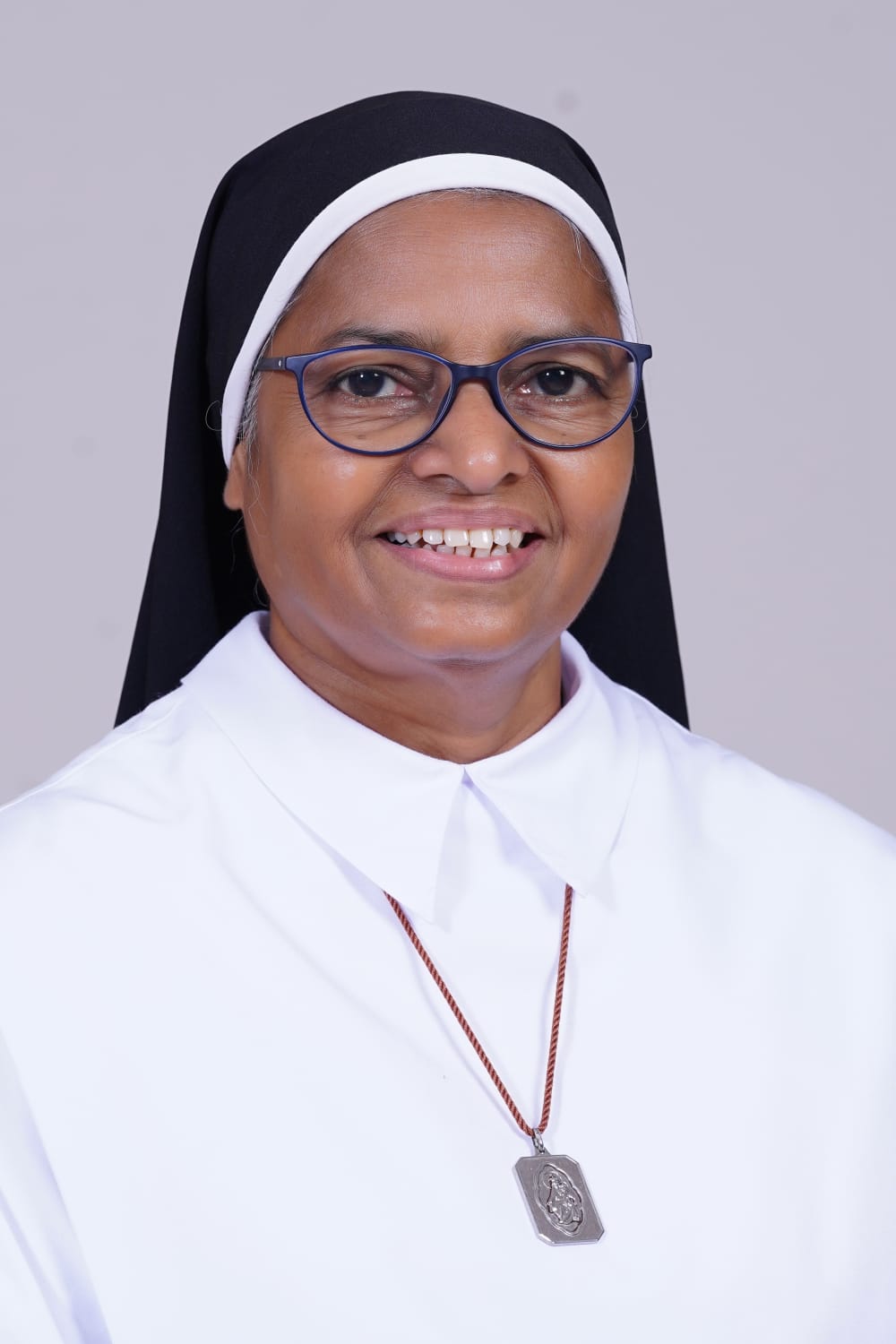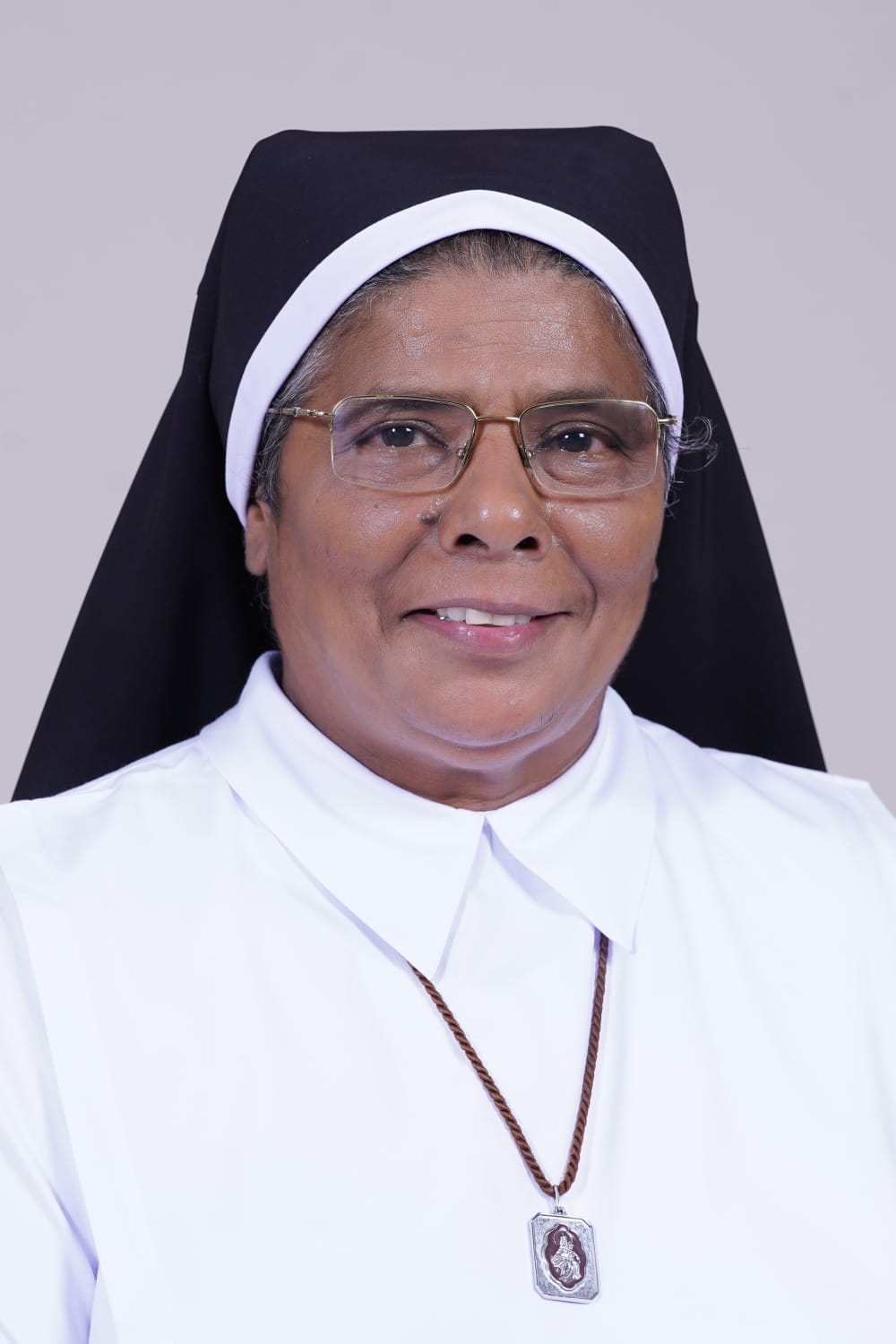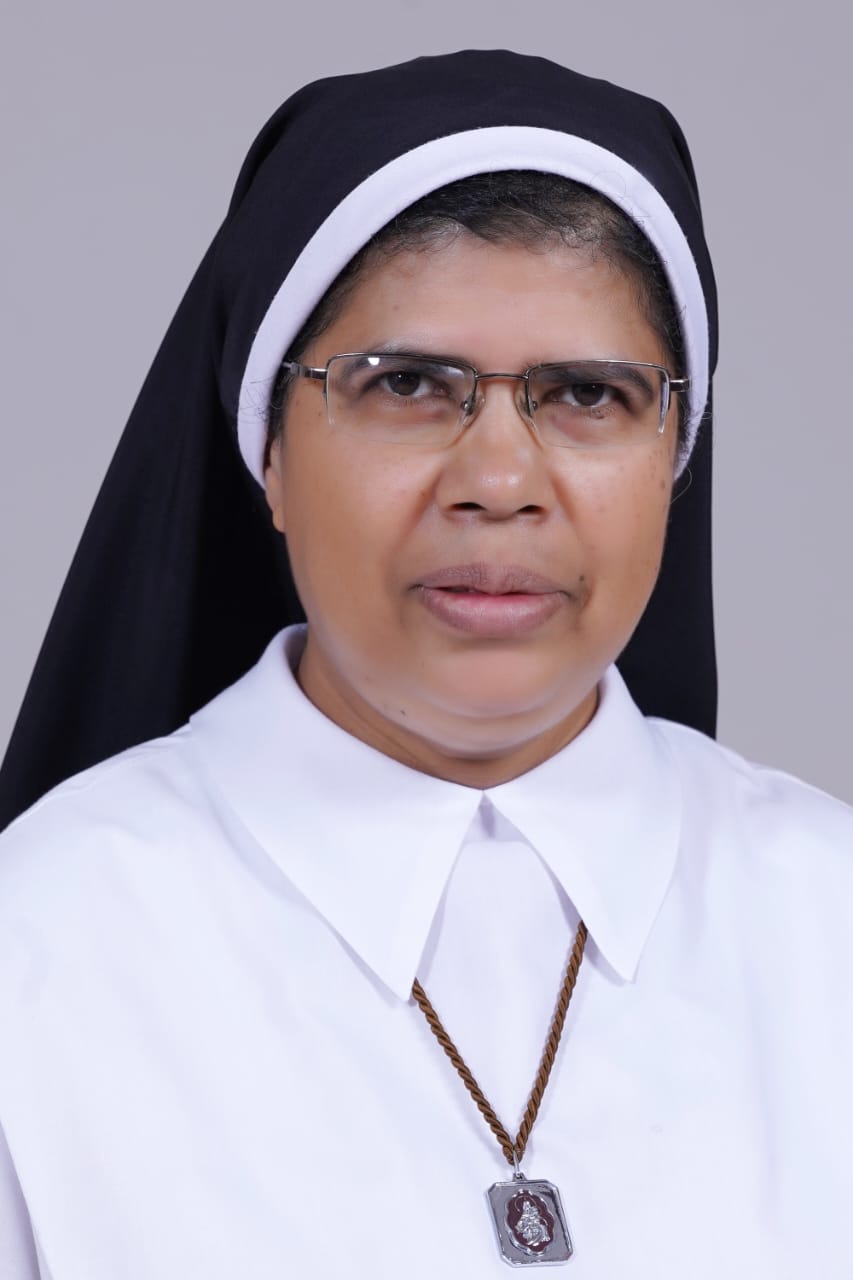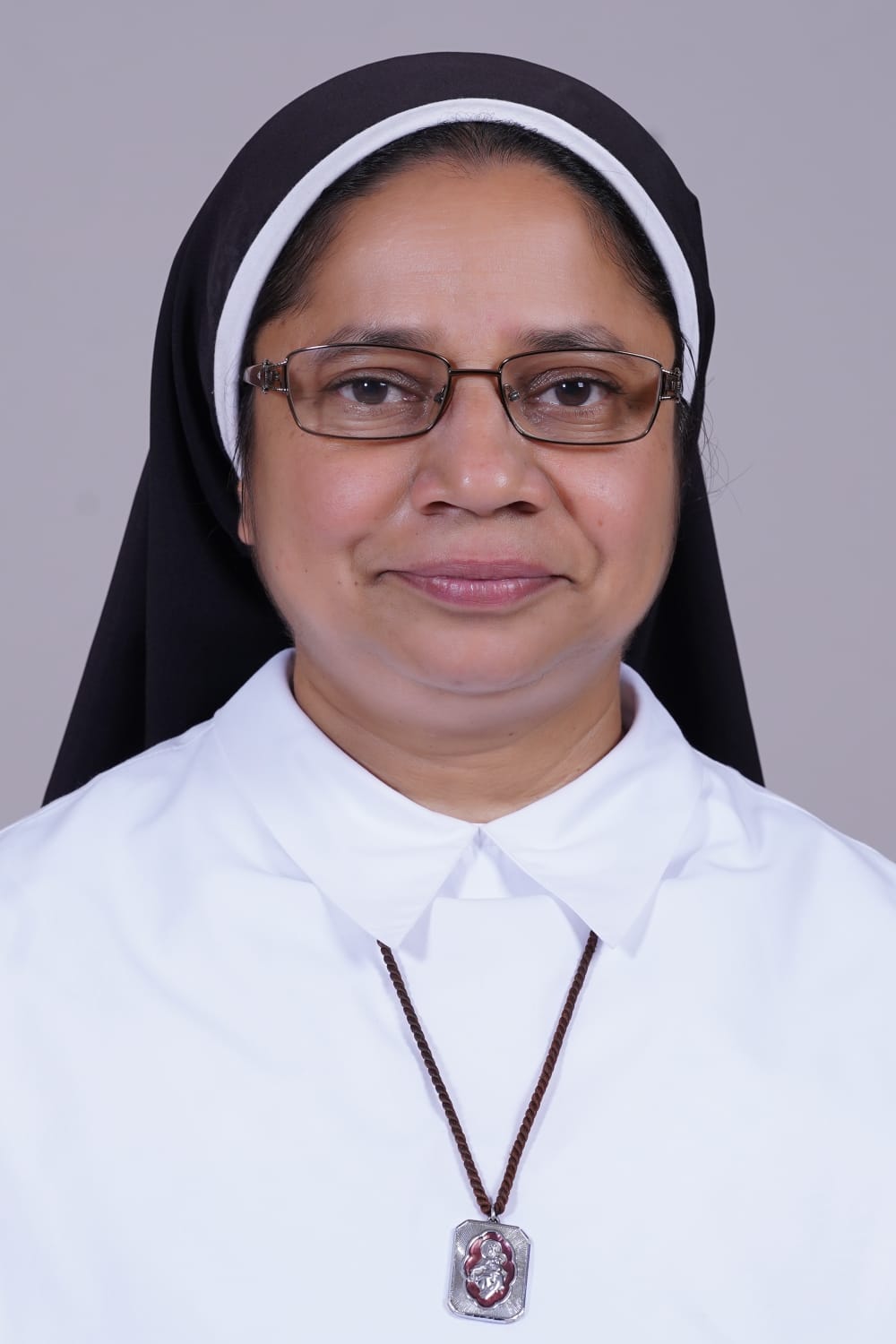RECOLLECTION: MARCH 2024
LENT – WRESTLING AGAINST TEMPTATION WITH THE DIVINE GRACE
Introduction
Day by day, hour by hour, morning after morning, we begin our walk with Jesus, placing our trust
in Him. Pain is inevitable for all of us, but we should know how to react to pain. Suffering as such
does not bring us any fear but it can be awful at times and inexpressible. We can decide, how to
react to the pain that will come to us all. Pain, whether physical, mental, spiritual, financial and the
like can drain us down, if we lack the stamina. Let’s listen to Venerable Mother Veronica’s
comforting words, “I am such a grain of dust to do anything and suffer something for Him”. She
wants us to be happy. Once, we bear in mind that we are dust, then, our pride will vanish. Let us
fix our eyes on Jesus, and then, in our own eyes, thus, we become smaller and smaller. What is my
intelligence, power, talent and excellence compared with His? Isn’t it insignificant? Mother
Veronica had to bear the embarrassing situation of being termed as a Carmelite who escaped from
the Carmel of Pau. This was the beginning of her humiliation and resolved to bear it all, knowing
fully well who she was just made of dust and into dust, she would return one day. Our beloved
Foundress lived up to this principle. When we are pelted with unrelenting words, as was the case
of Job, and we remain crushed, then, let’s turn to the Lord, our comforter and hope, and take solace
in reminding ourselves that we are but grains of dust.
Lent is a special time of preparation and an opportunity to go deeper with God. In the Gospel of
Ash Wednesday Jesus presents us with a triple advice. Jesus challenges us with the words: “When
you give alms’…; when you pray…; when you fast…”. It means that we are asked to examine in
depth, our triple relationship with our neighbour (almsgiving), with God (prayer) and with
creation (fasting).
1. Some reflections on temptation and sin.
Temptation in itself is not a sin. But it is possible that temptation becomes an occasion for sin.
Moreover, we often forget that temptation can also be an occasion for good because it shows the
real depth of the heart and makes a personal choice possible. Temptation is therefore a place of
liberty and truth, of grace offered, received or refused.
Another thing that we may frequently forget is that temptation does not come from outside
ourselves, but from within, from our mind and heart (Mt.15:10-20). This is why nobody is tempted
in the same way, because everybody is different. This is also why it is so important to discover the
secret ways of sin and grace in our lives.
The third thing to emphasize is that sin is not random; it is always the result of a process and it
leads to a distorted or even broken relationship with our neighbour, with God or with creation.
Some sins are called basic, namely Deceit, Despair and Division, because these are exactly the
opposite of the theological virtues of Faith, Hope and Love.
2
The book of Genesis can help us in getting a deeper insight in those 3 fundamental sins. In Gen.1:3-
13 we see how satan deceives Adam and Eve in the garden. He proposes to them to eat the forbidden
fruit in order to become equal with God. As a consequence of their disobedience, they discover
their nakedness or their nothingness in front of God. This way of deceiving by satan can lead to
various forms of idolatry as we shall see later in the temptations of Jesus.
1. THE TEMPTATIONS OF JESUS IN THE DESERT.
This is the theme of the Gospel on the first Sunday of Lent. We mentioned above that Satan uses
various forms of deceit in trying to divert our attention from God. In Mt.4:1-11 or in Lk.4:1-12
we find a perfect illustration of the cunning tactics of satan. What is at stake is not even a fight
between good and evil, but a struggle for the heart and mind of Jesus. We note that Satan does not
tempt Jesus with what is bad or wrong, on the contrary, he pretends to confirm him in his mission.
He says: “If you are the Son of God…” and even quotes Scripture! Instead of opposing the mission
of Jesus, Satan tries to divert Jesus from his mission.
The first temptation is about turning stones into bread… What could be more laudable?! Jesus
will give bread in abundance, and He will feed the hungry crowds. He will go even as far as calling
himself ‘the Bread of Life’. However, the bread here represents wealth, money, material goods,
honourable positions, etc. These are not bad things in themselves. The only danger is that they
can attract all our attention and take the place of God in our lives, thus distracting us from our
single minded service of God and our neighbour. Jesus wants that we give first place to God
and share our riches or possessions with those in need.
The second temptation is about ruling over all the kingdoms. Again, is that not Jesus’ mission?
Did He not declare himself king in front of Pilate? He is not called king of the universe? However,
the kingdoms represent power and might, it is probably the most tricky temptation. Power can be
exercised over others in many ways, there can be political, economic, social, religious and sexual
abuse of power. It can be extremely subtle and power struggles are present everywhere in society
and indeed in the Church. Jesus wants us to exercise power as rendering a service.
The third temptation is about throwing Himself down from the temple and being carried by
angels…Is that not what Jesus achieved by His determination and His freedom before his judges
and executioners? Jesus Himself said that His Father could send an army of angels from heaven
to protect Him from being handed over. Throwing Himself down from the temple represents being
successful and proud. Jesus gave Himself freely into the hands of sinners and commended His
spirit in the hands of His Father. Jesus wants us to be humble and become like little children.
In the desert, the devil tempted Jesus right at the bottom of His heart. The desire for possessions,
power and pride is deeply rooted in each person’s heart and there is need for a constant struggle
to overcome it. That is why we need an ongoing conversion. Pope Francis has his own way of
warning bishops, priests and religious against these three dangerous trappings. He calls them BBC
or Bourgeois lifestyle, Bureaucracy and Clericalism. A strong antidote against the temptations
3
of possessions, power and pride are the three evangelical counsels of poverty, chastity and
obedience.
By refuting the temptations of satan, Jesus makes a fundamental choice right at the beginning of
His mission. It forms one of the keys to understanding the whole gospel message which is based
on an attitude of simplicity, service and humility. Jesus will remain faithful to this choice right till
the end of his life, especially when satan returns to tempt Jesus during his agony in the garden of
Olives when he tries again to divert Jesus from his mission.
2. CONVERSION
Our reflection on sin and its consequences lead us to the need for conversion, for a change of heart
and for reconciliation with God, our neighbour and creation. Conversion holds a very prominent
and important place in Jesus’ teaching. In fact, He begins His public life with a general call to
conversion. (Mk.1:15). Also John the Baptist, the frontrunner of Jesus, preached a message of
repentance (Mk.1:4).
In the gospels, we discover a preferential love of Jesus for the individual sinner, not for sin,
especially when he or she repents freely. Jesus goes as far as going in search of the lost sheep in
order to bring it back home. Other examples are Jesus’ table fellowship with sinners (Mt.9:10-13)
and (Lk.15:1-3) and His attitude towards the adulterous woman (Jn.8:3-11).
The best example of God’s love for the repentant sinner is found in Lk.15 where we find the three
parables of God’s mercy, namely the lost sheep, the lost drachma and the prodigal son. (Lk.15:4-
32)
The pattern of conversion is best illustrated in the parable of the prodigal son or of the merciful
father. It contains five steps:
1) A deep faith or trust in God’s unconditional love, mercy and compassion.
2) A personal awareness of my sinfulness, admitting my guilt in all humility.
3) A deep feeling of sorrow and regret.
4) A sincere desire to reject sin and find inner freedom, relying on God’s grace and strength.
5) An experience of joy, peace and gratitude for having been forgiven by God.
Venerable Mother Veronica, our Foundress underwent terrible trials, temptations, humiliations of
every kind and the greatest of these being the interior afflictions that found her helpless, feeling the
weight of her sins and a sense of abandonment, she offered her life in surrender to God even in
challenging circumstances. Mother Veronica could overcome all hurdles for she firmly believed the
following words. Put your trust in God alone. Be of good courage, the darkness of the night will pass
and then joy comes in the morning. My dear Sisters, being rooted in the contemplative spirit of
Carmel and nourished by its life of prayer and missionary zeal, let us follow in the footsteps of our
beloved Foundress and through apostolate of education and other acts of mercy, give our best to
serve the creation of God.
4
In conclusion, we could say that the whole history of Israel can be summed up as a story of sin and
conversion and as individuals we do resemble that story.
*If Jesus was tempted by Satan in order to divert him from his mission, what about us?!
*We could ask ourselves: “What is my biggest temptation? What kind of idolatry do I engage in?
Where am I struggling most?”
*Jesus says: “Where your heart is, there will also be your treasure”. What is my real treasure?
*How can I make room for the kingdom of God to take root in my heart and life? It is clear in Jesus’
life that his only treasure is Abba, his heavenly father.
*How can I succeed in avoiding the trappings of Satan?
A daily examen of conscience is a precious tool for an ongoing conversion.
My dear Sisters, let us practise this important spiritual exercise daily to deepen our relationship
with the Lord and one another.
Sr.Philda Varghese CCR
Councillor in – charge of Spirituality

Mother Mary Michael of the Redemption (1860-1926)
Mother Michael was our first Mother General. Elected in 1908, this first architect of our Congregation, established her foundations with steadfast courage and great patience despite lack of personnel and funds, the first one at Anjengo (1916), the next at Santacruz (1922) followed by another at Neyyatinkara (1926) and the last one at Karwar (1926) where she was called to her heavenly abode. She was at the helm from 1908 to 1926.
With a heart of gold, intrepid spirit and the virtue of a saint, Mother M. Michael proved herself a skilled captain steering the ship of the infant Congregation through stormy waters and safely to harbour, with firm faith and confidence in God. She had the satisfaction of seeing the Congregation firmly established.
Every moment of her life was characterized by the spirit of humility, simplicity and charity to the poor, the sick and the orphaned. God accepted every sacrifice made by Mother M. Michael for the sake of the Congregation she loved so well and served so nobly – even the supreme sacrifice of dying and being interred far from her beloved daughters in Mangalore













